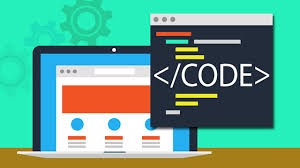A surge of apps programming

Jean-Claude Elias, The Jordan Times
It has been here since the very beginning of the modern computer era, circa the 1950s, and it is proving now that it is more important than ever, with the sudden surge in the demand for software applications of all kinds, because of the confinement situation that wants us to stay at home and to work remotely. It is computer programming.
A certain number of elements come together to make the Internet work. Electricity, various computer hardware, cabling, data storage, Internet Service Providers, routers, protocols, etc. Whereas each is indispensable, the system would not work at all without good programming. It is worth remembering that, on the dark side of technology, computer viruses too are nothing but programmes.
At the basic level of the web, a good browser is the programme, the software tool that lets you open a window to look at the world. Chrome, Safari, Firefox and Edge are the main browsers, with Google’s Chrome claiming the market lion’s share with about 56 per cent of the world web traffic, according to techadvisor.co.uk report last month. Google has just announced that given the crisis situation it is postponing just a little the release of Chrome’s upcoming version update.
Whatever you may be doing, with a laptop computer or a smartphone, online or offline, for personal use or for business, as a critical task or just for fun, you cannot do it without a programme. We tend to forget this essential point of technology.
There are “big” programmes and then there are what we now commonly call applications of “apps” – they are programmes too, of course, but are usually smaller and they mainly target mobile devices and users. The first category includes web browsers like the ones mentioned above, operating systems like Windows, Android, iOS, MacOS, Microsoft Office Suite, Adobe Photoshop, Oracle database, and so forth.
The second category would include the myriad of mobile applications that make our smartphones what they are, and that we find, typically on Apple Store or Google Play. The last name is a bit deceptive for it covers all kinds of applications and is not about playing or games, though it does include this type of programmes too.
The surge now understandably is on the apps side, given the trend to go mobile in most everything.
Banks are fine-tuning their apps and adding to them, supermarkets and food delivery outlets are resorting to apps to take orders and to process them in this time of massive confinement. On-call taxis services – Careem for instance – are adding functionality to their already existing apps to ensure more flexibility in their business. Governments in all countries are doing the same and are relying on apps to improve the communication with their population.
Never before has the demand for apps, and consequently for good programmers, has been so high. The most popular programming languages for apps are Java, C, C++ or C#, php, and … Corona (yes, it is correct)! Corona is a software development kit initially developed circa 2010 by Corona Labs Inc. It works on Android and iOS as well. Its newest release dates back to end 2018. It is less frequently used that Java and the other languages, but is still used in apps for Apple and Android TV, for instance.
The young generation of programmers for apps tends to go for Java and C++, essentially. Very different from the world of large applications that are mainly designed and produced by the big players like Microsoft, Adobe or Oracle, apps are at the reach of even freelancers. It is a fascinating world and it has opened the door to creativity, free enterprise and billions in revenue for the creators. The current confinement situation is working as a significant booster for apps developers.
Latest News
 King, Bahrain monarch stress need to maintain Arab coordination
King, Bahrain monarch stress need to maintain Arab coordination Security Council to vote Thursday on Palestinian state UN membership
Security Council to vote Thursday on Palestinian state UN membership Dubai reels from floods chaos after record rains
Dubai reels from floods chaos after record rains Khasawneh, Saudi Shura Council speaker discuss bilateral ties, regional developments
Khasawneh, Saudi Shura Council speaker discuss bilateral ties, regional developments Egyptian Foreign Minister condemns potential Palestinian displacement as 'war crime'
Egyptian Foreign Minister condemns potential Palestinian displacement as 'war crime'
Most Read Articles
- Senate president, British ambassador discuss strategic partnership, regional stability
- Jordan urges UN to recognise Palestine as state
- JAF carries out seven more airdrops of aid into Gaza
- Temperatures to near 40 degree mark next week in Jordan
- Safadi, Iranian counterpart discuss war on Gaza, regional escalation
- UN chief warns Mideast on brink of ‘full-scale regional conflict’
- US vetoes Security Council resolution on full Palestinian UN membership
- Google fires 28 employees for protesting $1.2 billion cloud deal with “Israeli” army
- Biden urges Congress to pass 'pivotal' Ukraine, Israel war aid
- Israeli Occupation strike inside Iran responds to Tehran's provocation, reports say